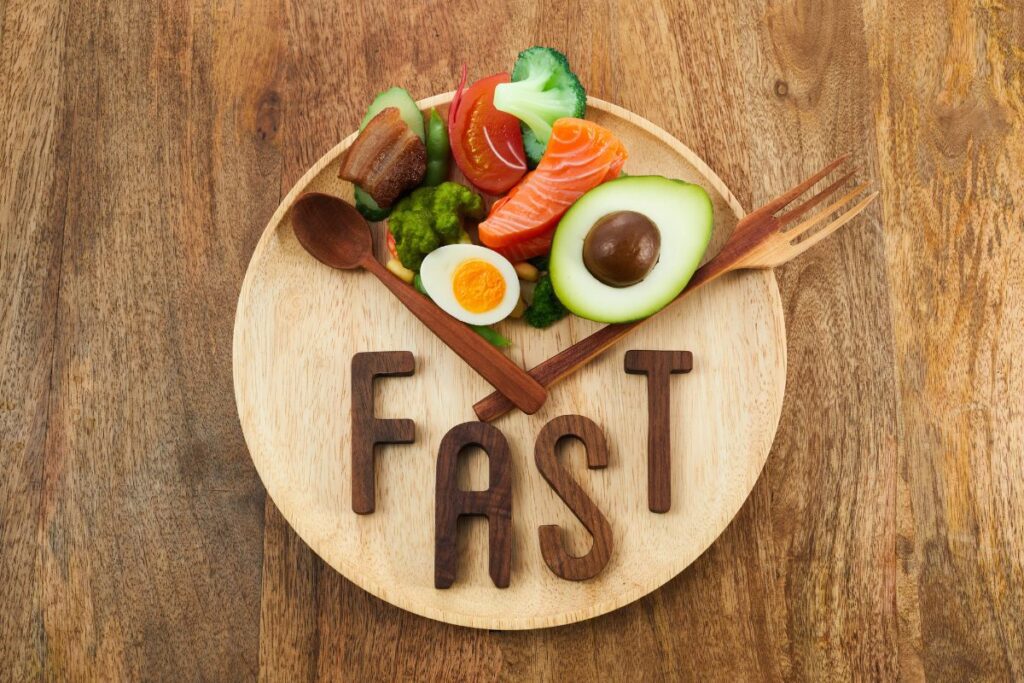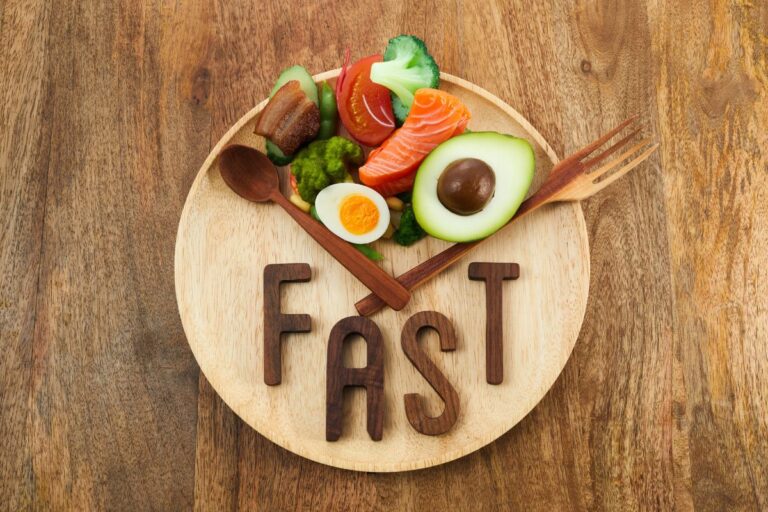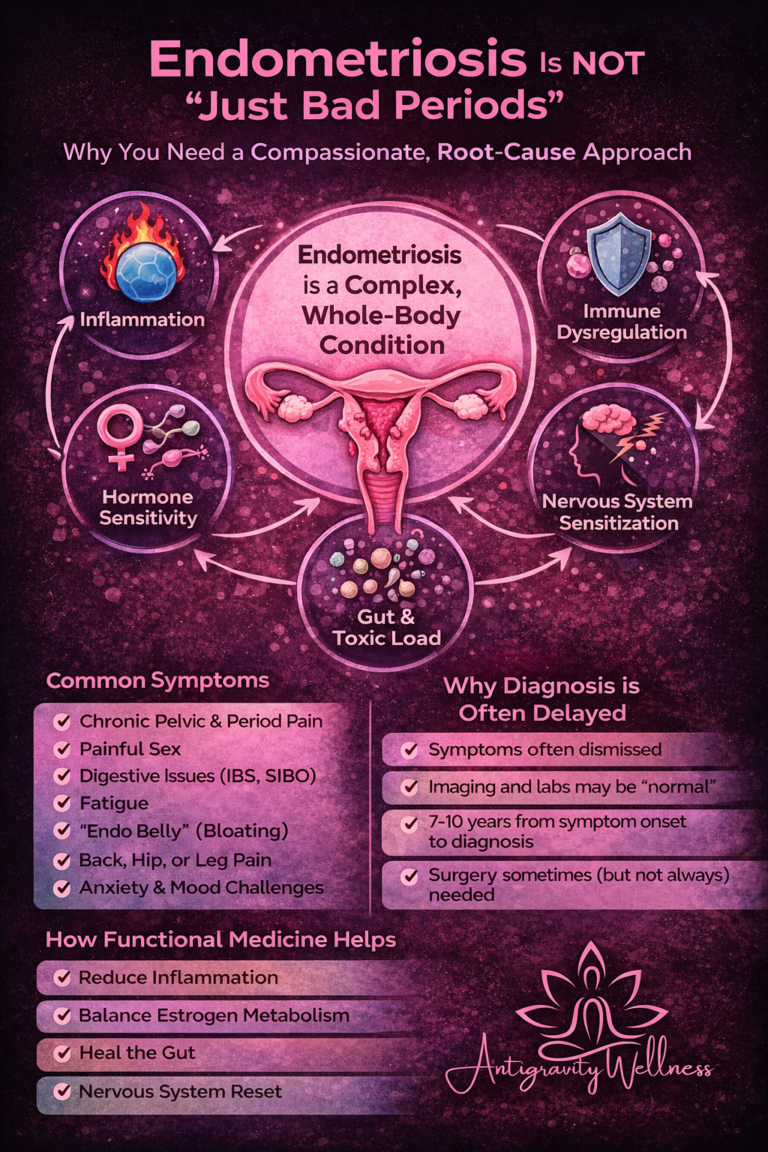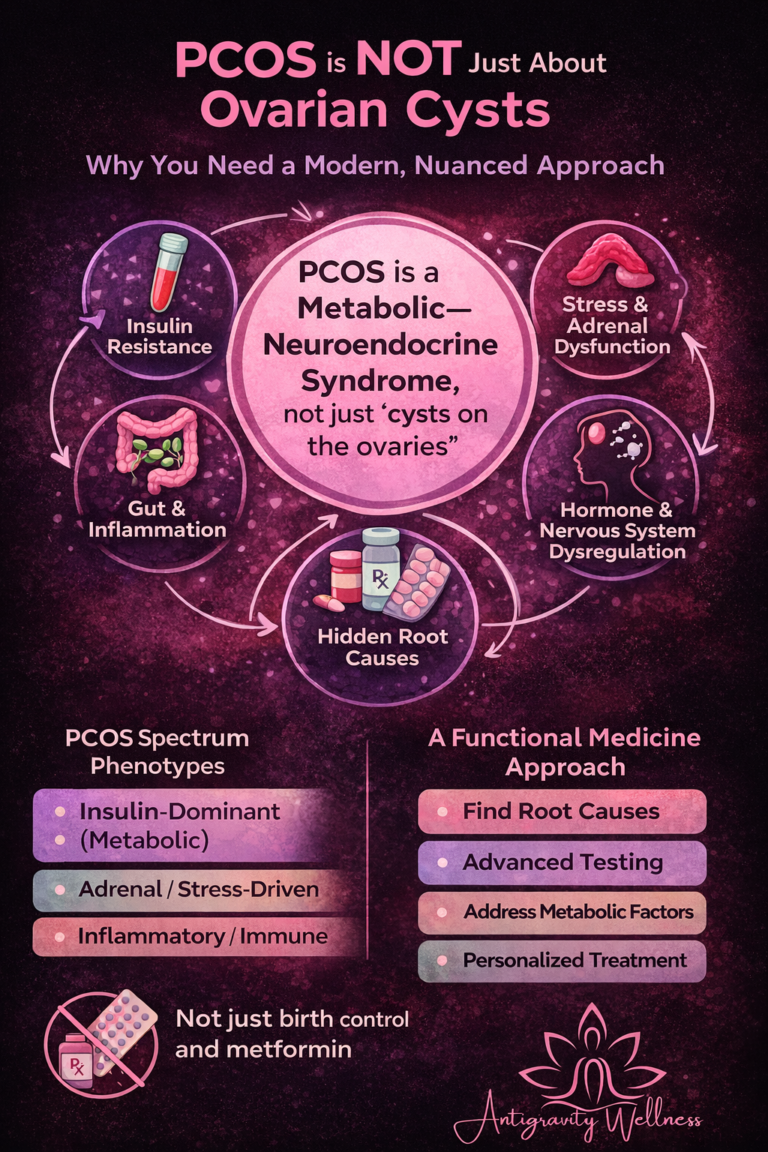
Intermittent fasting (IF) is everywhere—hailed as a miracle tool for weight loss, brain clarity, and metabolic health. But here’s the truth: most of the research on IF has been done on men or postmenopausal women. That’s a problem, because female physiology—especially during the perimenopausal years—is dramatically different and more complex.
Dr. Stacy Sims, an expert in female physiology and exercise science, has been leading the charge in explaining why long morning fasts, in particular, may backfire for many women. Let’s break down what the research shows—and how a personalized approach makes all the difference.
How Intermittent Fasting Affects Women Differently
1. Women Already Have Strong Metabolic Flexibility
Thanks to estrogen, most women naturally shift between fuel sources (carbs and fats) more efficiently than men. This means we don’t need to “train” our bodies through fasting to become metabolically flexible. In fact, extended fasting can create more harm than help by pushing the body into a stressed, depleted state.
Reference:
- Arjmandi BH, et al. Role of Estrogen in the Regulation of Lipid and Carbohydrate Metabolism in Women. Nutrition Reviews. 2004.
- Mauvais-Jarvis F. Sex Differences in Metabolic Homeostasis, Diabetes, and Obesity. Biology of Sex Differences. 2015.
2. Stress Hormones Spike—And Stay Elevated
Long fasts, especially in the morning or around workouts, can increase cortisol, your primary stress hormone. Elevated cortisol throws off the delicate balance of your sex hormones—particularly progesterone and estrogen—which can worsen symptoms like mood swings, low libido, anxiety, fatigue, and poor recovery.
Reference:
- Michopoulos V, et al. Chronic stress-induced increases in cortisol suppress the luteinizing hormone surge and ovulation in primates. Endocrinology. 2011.
- Zsido RG, et al. Cortisol is associated with menstrual cycle phase and interacts with emotional state in women. Hormones and Behavior. 2018.
3. Fasting Can Lead to Binge-Restrict Cycles
Skipping breakfast and pushing meals later in the day often leads to stronger cravings, blood sugar crashes, and evening overeating. Over time, this pattern trains the body to store more fat and burn less efficiently—working against your goals.
Reference:
- LeCheminant JD, et al. Restricting evening eating reduces daily energy intake in healthy women. Journal of Nutrition. 2013.
- Coulston AM, et al. Nutritional quality of diets and eating behavior of women who fast during the day. Nutrition Research. 2008.
When Fasting Might Be Helpful for Women
That said, there are times when intermittent fasting can be helpful—especially in specific clinical situations like:
- PCOS (Polycystic Ovary Syndrome)
- Metabolic Syndrome
- Obesity or prediabetes
In these situations, time-restricted eating (such as a 10–12 hour eating window, rather than extreme fasts) might help balance insulin and reduce inflammation. But again, the key is individualization and clinical supervision.
Reference:
- Hutchison AT, et al. Time-Restricted Feeding Improves Glucose Tolerance in Women with PCOS. Journal of Clinical Endocrinology & Metabolism. 2019.
- Arnason TG, et al. Intermittent fasting and metabolic health. Canadian Family Physician. 2017.
Case Study: Sarah’s Story
Sarah (name changed for privacy), a 39-year-old teacher, came to Antigravity Wellness feeling frustrated. She had been trying intermittent fasting for the past six months in an attempt to lose weight and “fix” her PCOS. But instead of feeling better, she felt worse:
- Morning brain fog and intense anxiety
- Decreased libido and painful intimacy
- Mid-day energy crashes
- Irregular periods and worsened PMS
- Cravings and nighttime overeating
Labs revealed low progesterone, signs of estrogen dominance, and insulin resistance. She had been skipping breakfast and pushing her first meal until noon—even on mornings she worked out.
Here’s what we did instead:
- Shifted to eating within 60-90 minutes of waking
- Added a protein-rich snack before workouts
- Introduced gentle strength training and daily walking
- Supported her adrenals and sex hormones with adaptogens and targeted nutrition
- Collaborated with her primary care doctor to monitor labs and metabolic markers
- Slowly introduced cyclical seed rotation, inositol, and magnesium glycinate
Within eight weeks, Sarah’s energy rebounded, her libido improved, and her eating patterns felt more stable and nourishing. Most importantly—she stopped feeling like her body was broken and started trusting it again.
At Antigravity Wellness, We Don’t Do One-Size-Fits-All
Whether you’re struggling with PCOS, low libido, mood swings, weight gain, or feeling dismissed by your provider—we see you. At Antigravity Wellness, we individualize care for every perimenopausal and menopausal woman. Our approach integrates:
- Functional lab testing
- Nutrition and meal timing strategies
- Supplement protocols
- Fitness plans that match your phase of life
- Stress and sleep optimization
- Hormone replacement therapy when appropriate
Ready to feel like yourself again?
Book your Brief Initial Consult Call today. It’s your chance to get clear, compassionate answers—and finally move forward with a plan that fits you.
P.S. This month, our Brief Initial Consult is still only $7 (normally $47)! Don’t wait—let’s get you back to feeling strong, clear, and in control.




